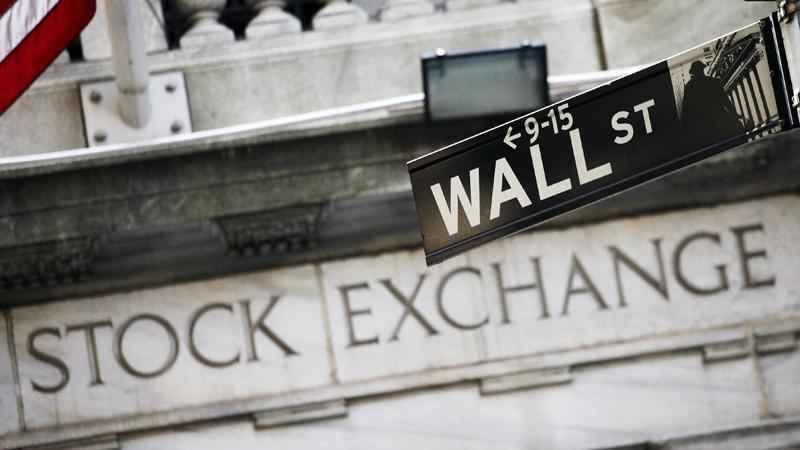Tech pulls stocks lower as bond yields continue upward march

This July 16, 2013, file photo, shows a Wall Street street sign outside the New York Stock Exchange.[AP/Mark Lennihan, File]
Technology companies led another broad sell-off on Wall Street Thursday as a spike in bond yields put more pressure on the market’s high-flying stocks.
The S&P 500 was fell 1.3%, its third straight loss. The benchmark index, which briefly dipped into the red for the year, is on track for its third consecutive weekly loss. Just four days ago it notched its biggest gain since June. That market rally was driven by what now appears to be a brief pause in the recent, swift rise in bond yields, which in turn pushes up interest rates on loans for consumers and businesses.
The latest losses came as the yield on the 10-year Treasury rose sharply during a question-and-answer session with Federal Reserve Chair Jerome Powell during which Powell said inflation will likely pick up in the coming months. He cautioned that the increase will be temporary, and won’t be enough for the Fed to alter its low-interest rate policies.
The remarks, signaling a wait-and-see stance on the surge in bond yields, failed to ease investors’ concerns that stronger growth will lead to higher inflation, which unchecked can slow economic growth.
“You have a context where rates have moved quite rapidly the last few days, so the market is generally on edge and looking for more reassurance in the short term," said Lisa Erickson, head of traditional investments at U.S. Bank Wealth Management.
The S&P 500 fell 51.25 points to 3,768.47. The Dow Jones Industrial Average lost 345.95 points, or 1.1%, to 30,924.14. The Nasdaq composite dropped 274.28 points, or 2.1%, to 12,723.47. The pullback knocked the tech-heavy index into the red for the year.
Small-company stocks fell even more. The Russell 2000 index of smaller companies gave up 60.87 points, or 2.8%, to 2,146.92.
As the economy reopens this spring and summer, and vaccines are distributed and the coronavirus retreats, many economists expect a spending boom that will stretch available supplies of goods and services. That will likely push up prices, Powell said Thursday.
Even so, Powell gave no hint that the Fed would take steps to keep longer-term interest rates in check, such as by shifting some of its $80 billion in monthly Treasury purchases to longer-term securities.
“We think our current policy stance is appropriate,” he said.
The yield on the 10-year Treasury note jumped to 1.54% during Powell’s remarks, from 1.47% just before, a significant move. At the beginning of the year the yield was trading at 0.93%.
Investors have been keeping a close eye on the bond market in recent weeks, where yields have been rising along with expectations that the economy, and possibly inflation, could be set to pick up as vaccinations increase and coronavirus restrictions on businesses, travel and schooling begin to lift more.
When yields rise quickly, it forces Wall Street to rethink the value of stocks. Technology stocks are most vulnerable to this reassessment after having soared during the pandemic, making them look pricier than the rest of the market. Bank stocks, in contrast, tend to do better when bond yields are rising because higher yields mean banks can charge higher rates on mortgages and other loans.
“You’re having a fairly healthy and natural consolidation period," said Mark Hackett, chief of investment research at Nationwide.
Wall Street has been anticipating an improving economy since late last year from the eventual distribution of vaccines, additional stimulus and a steadier reopening, he said.
“The market tends to do better when the good news is further out and struggle more when it is in hand," he said. “There’s really nothing currently as the next catalyst.”
The price of U.S. crude oil jumped 4.2% after OPEC members agreed to leave most of their existing oil production cuts in place. That helped send energy company stocks broadly higher. Exxon Mobil rose 3.9% and ConocoPhillips rose 3.7%.
The Senate is moving forward with President Joe Biden’s stimulus bill, with most of the negotiations now happening between the more moderate Democrats in the Senate and the White House.
Investors were also looking ahead to the February jobs report on Friday. Economists surveyed by FactSet expect employers created 225,000 jobs last month. The report also includes numbers for how much wages are rising across the economy, a key component of inflation.